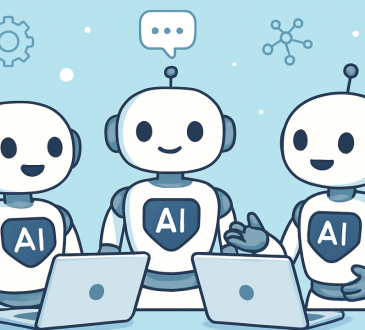
Doctors Share Top Concerns About AI Surrogates in Life-or-Death Decisions
In a future that feels increasingly near, artificial intelligence could become more than just a digital assistant — it could become your advocate.
Imagine this: you’re unconscious after an accident, and doctors must decide whether to continue life support or attempt a risky treatment. Instead of turning to your family, they consult an AI surrogate — a digital version of you, trained on your memories, communication style, and decision patterns.
Would you trust it to make that call?
This question is no longer hypothetical. As AI becomes more personal and embedded in healthcare, ethicists and doctors are asking whether these “AI replicas” or “digital twins” should have a say in life-or-death decisions. The idea promises precision and autonomy but also opens the door to complex ethical, legal, and emotional dilemmas about identity, free will, and what it means to be human.
The Rise of AI Surrogates
The concept of using AI to represent a patient’s wishes is moving from theory to reality. Advances in generative AI and behavioral modeling have made it possible to train digital systems on a person’s medical records, messages, and choices — creating a version that could predict how the individual might respond in future medical situations.
In theory, such a system could speak for you when you can’t. Instead of relying on family members to guess your wishes or reading from an old legal document, doctors could ask a version of you that “thinks” like you.
Supporters argue this could protect patient autonomy better than any advance directive.
“Advance directives are often vague or outdated,” says Dr. Melissa Crane, a bioethicist at a major U.S. hospital. “An AI surrogate could, in theory, offer a more complete and evolving picture of what the patient truly values — almost as if they were still present.”
Promise Meets Peril
Despite the potential, many in the medical community are wary. Introducing AI into such deeply personal decisions could create new problems as quickly as it solves old ones.
Authenticity and Change
Can an AI truly represent you, or is it simply imitating past patterns? Human choices change with age, experience, and emotion.
“Even if an AI matches your preferences 95 percent of the time, it still lacks self-reflection in the moment,” says Dr. Ravi Patel, an intensive care specialist. “You’re not a fixed dataset. Your feelings about life support at forty might not be the same at sixty.”
Bias in Data
AI only reflects the data it’s trained on. If that data is incomplete or skewed — for instance, based only on emails and not private conversations — it might misrepresent your true values.
Emotional Consequences for Families
When an AI surrogate makes a decision that conflicts with a family’s wishes, who carries the emotional burden?
“Imagine an AI recommending ending life support while relatives are begging for more time,” says Dr. Crane. “Even if that decision reflects the patient’s previous wishes, it could cause lifelong guilt or anger.”
Legal and Ethical Gray Zones
The law offers little guidance on this emerging issue. As of now, only humans or legal documents can make end-of-life decisions. AI systems, no matter how advanced, have no legal status.
Still, as hospitals adopt more digital tools, experts foresee AI models being used as advisors. But once an AI begins influencing life-or-death choices, the question of accountability becomes urgent.
“Who is responsible if something goes wrong?” asks attorney and ethicist Laura Ng. “Is it the software developer, the hospital, or the family who approved its use? Right now, the system isn’t built to answer that.”
Consent is another major issue. Should individuals be allowed to create an AI version of themselves for future medical use? And if they do, how can they be sure their personal data — their digital identity — is protected from misuse?
“When you hand over moral decision-making to a machine, even one modeled after you, you risk surrendering part of your humanity,” warns Ng.
The Human Element
Beneath all the technical and legal questions lies something more fundamental: should machines ever replace the human experience of compassion in medicine?
Most doctors remain firm that they should not.
“Medicine isn’t just about logic or efficiency,” says Dr. Patel. “It’s about empathy. An AI can process millions of data points, but it can’t sit with a grieving family or feel the weight of a goodbye.”
He recalls a difficult case where a patient’s family was divided about continuing treatment. “What they needed wasn’t an algorithm. They needed time, conversation, and understanding. Technology can guide us, but it can’t feel for us.”
Still, some see a middle ground. AI surrogates could be used as advisors — not decision-makers — to help doctors and families better understand what a patient might want.
“The key is not to let AI decide, but to let it inform,” says Dr. Crane. “If we use it as a guide rather than a judge, it could actually strengthen ethical decision-making.”
A Mirror of Our Values
Ultimately, the question of AI surrogates is a mirror held up to humanity.
Would you rather your loved ones make a decision guided by emotion, or an algorithm guided by data? Do we trust logic over love? And if a digital copy of you could one day think and decide exactly as you would — is that still you?
For now, AI surrogates remain in research labs, not hospitals. But as technology continues to blur the line between human and machine, the urgency to answer these questions grows.
Perhaps the most important truth is that, no matter how advanced AI becomes, the moral weight of choosing between life and death will always belong to people — imperfect, emotional, and deeply compassionate.
As Dr. Patel puts it, “AI might one day speak in our voice, but it will never carry our heart.”




